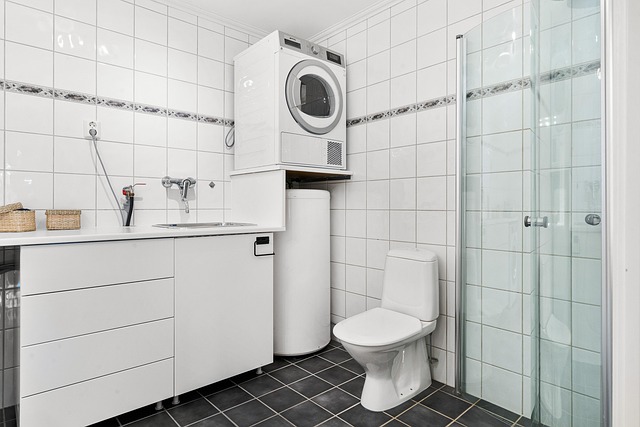Blockchain technology revolutionizes real estate by enhancing transparency and efficiency through digitalized property records, smart contracts, and secure peer-to-peer transactions, reducing intermediaries, speeding up processing, saving costs, and minimizing fraud, ultimately building trust and creating a safer market for residential and commercial properties.
Blockchain technology is transforming industries, and real estate is no exception. This revolutionary distributed ledger system promises to streamline transaction processes, enhancing transparency and efficiency in a sector known for complex, time-consuming procedures. By leveraging blockchain, real estate deals can be simplified, secure, and faster, benefiting buyers, sellers, and agents alike. In this article, we explore how blockchain is revolutionizing real estate, focusing on enhanced security through distributed ledgers, streamlined transactions, and its profound impact on the industry’s future.
Revolutionizing Real Estate: A New Era of Transparency

Blockchain technology has the potential to revolutionize real estate transactions, bringing about a new era of transparency and efficiency. By recording property ownership and transactions on a decentralized, immutable ledger, blockchain can eliminate many of the intermediaries and paperwork associated with traditional real estate deals. This results in faster processing times, reduced costs, and enhanced security for all parties involved.
In this new landscape, buyers, sellers, and lenders can have confidence that every transaction is accurate and traceable. Smart contracts, powered by blockchain, can automate various stages of the buying process, from initial offers to final settlement, minimizing human error and potential fraud. This transparency fosters trust among participants, creating a more secure and efficient market for both residential and commercial real estate.
Streamlined Transactions: Blockchain's Impact on Property Deals

Blockchain technology is transforming various industries, and its impact on real estate is no exception. When it comes to property deals, blockchain has the potential to revolutionize the way transactions are processed. By providing a secure, transparent, and decentralized platform, blockchain streamlines the entire process, from initial contracts to final settlement.
Traditional real estate transactions often involve multiple intermediaries, leading to delays, increased costs, and potential security risks. Blockchain, however, enables direct peer-to-peer interactions between buyers and sellers, eliminating the need for intermediaries. Smart contracts, self-executing agreements with predefined rules, automate tasks like verification, escrow, and payment processing, ensuring faster, more efficient, and safer property deals in the real estate sector.
Enhanced Security: Protecting Assets with Distributed Ledgers

Blockchain technology offers enhanced security measures that can significantly benefit the real estate industry, particularly in protecting valuable assets. At its core, blockchain is a distributed ledger system where transaction data is recorded and shared across multiple nodes, making it nearly impossible to alter or manipulate once recorded. This ensures transparency and immutability, crucial aspects in securing property transactions.
In the context of real estate, blockchain can provide a secure platform for recording ownership transfers, property sales, and lease agreements. Every transaction becomes a permanent entry on the ledger, accessible only through specific permissions, thus preventing fraud and unauthorized changes. This level of security is particularly valuable when dealing with high-value properties, ensuring that every step of the process is transparent and reliable.






